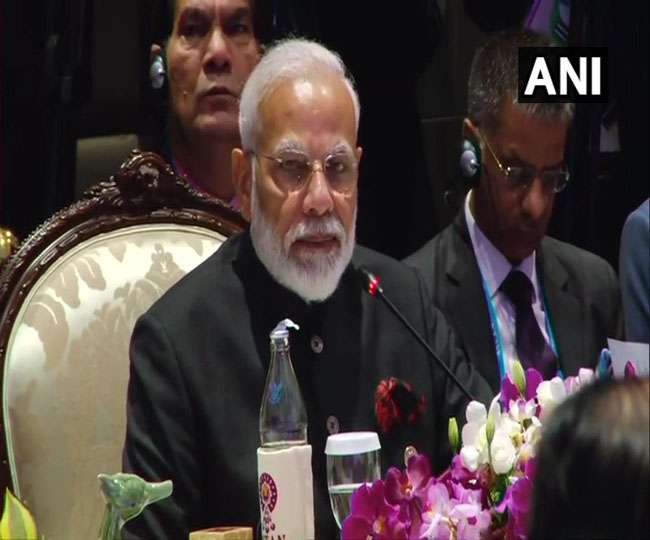- By Aalok Sensharma
- Mon, 04 Nov 2019 06:57 PM (IST)
- Source:JND
Bangkok (Thailand) | Jagran News Desk: India will not be part of the Regional Comprehensive Economic Partnership or RCEP, which will be the world's largest free trade pact of 16 nations, government sources -- quoted by news agency -- said on Monday adding that the Prime Minister stands firm as key concerns not were addressed and there will be no compromise on core interests.
“The key issues include - inadequate protection against import surge,insufficient differential with China, possible circumvention of rules of origin, keeping the base year as 2014 and no credible assurances on market access and non-tariff barriers,” ANI quoted government sources as saying.
“Gone are days when Indian negotiators caved in to pressures from global powers on trade issues. This time, India played on front foot, stressing on need to address India’s concerns over trade deficits and need for countries to open markets to Indian services and investments,” the sources added.
The sources said that India also raised the unavailability of Most favoured Nation (MFN) obligations where India would be forced to give similar benefits to the RCEP countries that it gave to others.
In his address at the RCEP summit, Prime Minister Narendra Modi also said that India stands for greater regional integration as well as for freer trade and adherence to rule-based international order. India has been pro-actively, constructively and meaningfully engaged in the RCEP negotiations since inception.
Also Read | PM Modi meets Japanese counterpart Shinzo Abe in Bangkok; discusses defence, trade ties
Earlier in the day, Thailand had said that the Southeast Asian countries held ‘conclusive’ talks on the RCEP and would soon make an announcement at the summit in Bangkok.
The RCEP includes the 10-member grouping of Southeast Asian nations which includes China, South Korea, Japan, India, Australia and New Zealand. When finalised, it would become the world's largest free trade area, comprising half of the world population and will account for nearly 40 per cent of the global commerce and 35 per cent of the GDP.
India, however, is worried about the potential flood of Chinese imports and raised doubts at the last moment and has been forcefully raising the issue of market access as well as protected lists of goods mainly to shield its domestic market as there have been fears that the country may be flooded with cheap Chinese agricultural and industrial products once it signs the deal.
